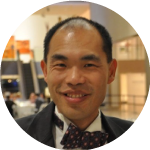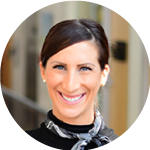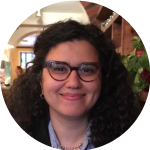- 12th International Translation Conference
- Previous TII Annual Conferences
- TII Conferences' Contacts

Keynote Speakers
Keynote Speakers
 Henry is a champion for translators, interpreters and terminologists worldwide.
Henry is a champion for translators, interpreters and terminologists worldwide.
A highly respected consultant interpreter for heads of states, trade and diplomatic missions, Henry is also a published translator of poetry, plays and operas. Most people will know Henry as a seasoned provocative keynote speaker in Oceania, North America, Latin America, Europe, Asia and Africa with particular emphasis on branding and visibility.
An opinionated advocate of professorial organisations and a strong believer in trans-national and multidisciplinary co-operation, Henry was elected 13th President of the International Federation of Translators (FIT), an NGO with consultative status with UNESCO, ECOSOC and WIPO, and was instrumental in the adoption of the UN General Assembly Resolution 71/288 in recognition of the role of professional translation in connecting nations and fostering peace, understanding and development, as well as the worldwide recognition of 30th September as International Translation Day (ITD).
He is also a member of the CHSS Advisory Council.
 Bionote:
Bionote:
Renée Desjardins is associate professor at the Université de Saint-Boniface, and the author of Translation and Social Media: In Theory, in Training, and in Professional Practice (Palgrave Macmillan, 2017), and co-editor of the recent When Translation Goes Digital: Case Studies and Critical Reflections (Palgrave Macmillan, 2021). She has been researching and writing about translation and social media for more than a decade and has published on the subject in a number of outlets.
Hindsight, Foresight, and 2020 Vision: translation theory, training, and praxis in a global pandemic.
Over the years, the subject of automation has held a central place in Translation Studies, specifically, the threat of automation. Concerns about machine-output surpassing human-output have existed ever since the IBM experiments of the 1950s. In the last ten years, the focus has shifted from the quality of the output to how we might instead reframe the human-machine relationship altogether – an arguably more promising and fertile direction for our profession and field. On March 11 2020, the World Health Organization characterized Covid-19 as a global pandemic. Since, it has seemed as if time has both accelerated, decelerated, and, in some cases, altogether stopped. Collectively, on a global-scale, we are experiencing an unprecedented “integral accident” (cf. Virilio) that has also triggered other significant ripples and waves: the heightening of racial injustices; the resurgence and rise of various social movements in response to these injustices; the accelerated democratization and dissemination of knowledge; the necessity and inescapability of networked digital technology – to name only these.
In this talk, I examine translation in this “zero time” (cf. Virilio; Charron) of an on-going pandemic in three key areas: theory, training, and praxis. I argue that effective public health communication, for instance, requires thinking about the “layered materiality” (cf. Littau) of translation and the avoidance of piecemeal conceptualizations that are rather unhelpful in multimodal transnational digital contexts. I interrogate current training requirements as well as pedagogical practices to see if we could not restructure our academic and training programs in ways that are more in line with the principles of access, equity, diversity, and inclusion. Finally, I show ways in which translation is used in innovative and perhaps unexpected ways on social media, thus shifting what we typically associate with ‘professional translation’. In these analyses, I share what I hope to be a more nuanced discussion around human-machine relationships in translation, inclusive and equitable translation pedagogy at a time when the elitism and exclusion of academic instruction is underscored, and how translation has become a way to (re)connect in these uncertain times.
 Dima Ayoub is an Assistant Professor of Arabic and C.V. Starr Junior Faculty Fellow in International Studies at Middlebury College where she was also the former director of the Middle East studies program. Her book manuscript Paratext and Power: Modern Arabic Literature in Translation rewrites the social and cultural history of modern Arabic literature in translation by centering the role of publishers, translators and paratexts, in addition to writers. She specializes in translation studies, gender and postcolonial studies. Parallel to her book project, Dr. Ayoub is developing a digital archive of modern Arabic literature in English, French, German and Spanish translation. Her most recent publications appeared in the Journal of Translation Studies, the Journal of Arabic Literature, Middle Eastern Literatures and in the edited collection, Multilingual Literature as World Literature with Bloomsbury.
Dima Ayoub is an Assistant Professor of Arabic and C.V. Starr Junior Faculty Fellow in International Studies at Middlebury College where she was also the former director of the Middle East studies program. Her book manuscript Paratext and Power: Modern Arabic Literature in Translation rewrites the social and cultural history of modern Arabic literature in translation by centering the role of publishers, translators and paratexts, in addition to writers. She specializes in translation studies, gender and postcolonial studies. Parallel to her book project, Dr. Ayoub is developing a digital archive of modern Arabic literature in English, French, German and Spanish translation. Her most recent publications appeared in the Journal of Translation Studies, the Journal of Arabic Literature, Middle Eastern Literatures and in the edited collection, Multilingual Literature as World Literature with Bloomsbury.







